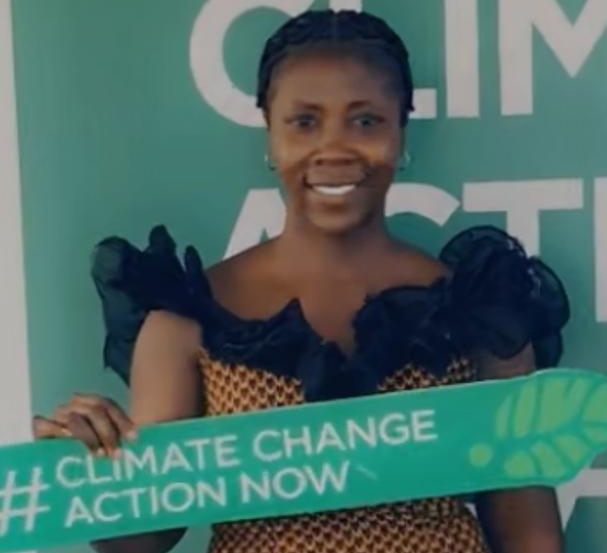The conversation surrounding environmental management and its sustainability in our country has reached a critical point likened to a state of emergency. It is commendable that the president is, among other things, considering a ban on Styrofoam containers, commonly referred to as take-away packs, as well as many plastic products.
During the recent World Environmental Day, I attended a seminar focused on Climate Management that aligned deeply with the ongoing discussions in this field. Notably, there were no plastic materials or writing instruments present at the event. Even during the lunch break, typical bottled water and plastic drink containers were notably absent. Instead, we were provided with beverages in paper cups, served on ceramic plates, and utilised wooden pens for writing. The dustbins were also constructed from heavy paper. This event truly represented the principle that “charity begins at home,” demonstrating leadership by example.
Through thoughtful storytelling and an in-depth examination of the issues surrounding plastic waste and its detrimental effects on nature, it became evident that these challenges should concern every engaged citizen. I found myself ideating on how we arrived at this moment. The competition with waste, whether on land, at sea, or in the air, presents an open and urgent danger that requires immediate attention. The depletion of resources and their consequences on our climate affect everyone, regardless of socioeconomic status. The health consequences as a result of plastic waste are significant and cannot be evaded, even by the wealthiest individuals.
As we consider our path forward regarding the impact of plastic waste on the environment and climate, it is crucial to adopt a strategic approach that acknowledges our history, assesses our current situation, and anticipates the future of this pressing issue. Understanding the past is essential to effectively addressing the current plastic epidemic we face.
It is essential to address what I refer to as the rethinking taboos as a strategy for combating plastic pollution and other forms of environmental degradation. Every society is rooted in its culture, and Ghanaians, traditionally, have been known for their adherence to taboos that guided their way of life. Years ago, the significance of these taboos was emphasised in educational settings, pointing out their relevance and role in preserving the environment.
However, with advancements in technology and evolving religious beliefs, many of these practices have been overlooked or replaced, leading to behaviours that contribute to environmental challenges. Taboos are often viewed as unacceptable or forbidden practices that are believed to provoke the wrath of deities, and they carry specific consequences. Whether one subscribed to these beliefs or not, the underlying reasons for many of these taboos provided considerable protection for both the environment and its inhabitants.
In the Eastern part of Ghana, where I grew up, it was a strict taboo to urinate or defecate near water bodies, as well as to dispose of waste in such areas. Certain forests were designated as sacred, prohibiting the felling of trees. I recently witnessed an incident at Labadi Beach where fishermen collaborated to return a large turtle to the sea. This is not the first occasion I have observed fishermen at the same beach safeguarding marine life, including the relocation of sea snakes, as they believe these creatures hold spiritual significance.
Turtles, among other species, are increasingly facing survival challenges due to the reckless actions of humans, both directly and indirectly. Human activities have significantly affected climatic conditions, impacting the well-being of various marine organisms. We must re-evaluate our practices and restore the respect that traditional taboos held for environmental conservation.
Research indicates that Accra and Aflao serve as significant breeding grounds for sea turtles that migrate from Brazil to Ghana. In Aflao, the local community often consumes these turtles as a food source, while in Accra, residents regard them as sacred creatures associated with the spirits of the sea, opting to protect them instead. This cultural perspective has resulted in a higher population of turtles in the waters off Accra compared to Aflao. Such traditions exemplify how taboos can play an important role in safeguarding nature from exploitation.
In light of this, I propose a revisitation of traditional practices that respect and protect the environment. For instance, I recall being taught as a child the importance of not speaking while eating, which not only served as a cultural taboo but also promoted mindfulness to prevent choking. Taboos can serve as valuable mechanisms for protecting various species, conserving natural resources such as water bodies, and controlling harmful practices like overhunting.
By revisiting and ‘intellectualising’ these taboos, we can deepen our understanding of cultural practices and align them with modern environmental conservation efforts. It is essential to incorporate these observations into environmental policies across various sectors, including education, industry, and corporate practices.
To achieve this, we must build an appreciation for cultural diversity by educating younger generations about progressive taboos within schools and communities. Teaching taboos through storytelling can be an effective method for imparting knowledge about environmental preservation through these traditional practices.
As we collectively address the pressing issue of environmental degradation, particularly about plastic pollution, it is crucial that we also remain focused on the future. The era of digitisation presents an opportunity to share content on environmental preservation to a wider audience. It presents a broader space to promote the idea of instituting traditional taboos to play a part in preserving Earth.
DISCLAIMER: The Views, Comments, Opinions, Contributions and Statements made by Readers and Contributors on this platform do not necessarily represent the views or policy of Multimedia Group Limited.
DISCLAIMER: The Views, Comments, Opinions, Contributions and Statements made by Readers and Contributors on this platform do not necessarily represent the views or policy of Multimedia Group Limited.


